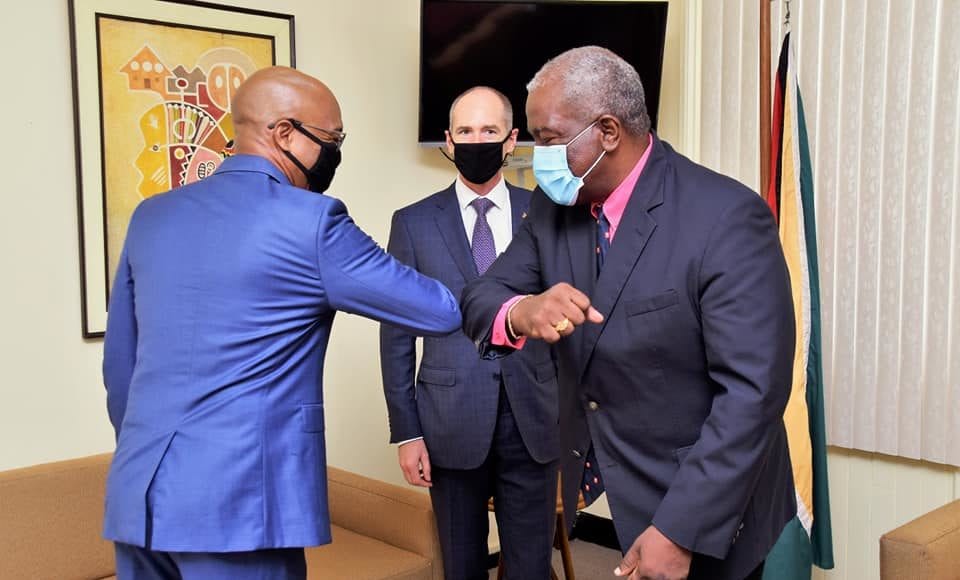An energy consultant is urging Guyana to create an investment environment that is built on the pillars of stability and security since this is the most effective way of attracting and keeping the big capital and expertise needed to develop its multi-billion-barrel oil and gas resources.
Randall Mohammed, Partner and Lead Consultant at Global Energy Advisory Services, said foreign direct investments play a major role in development and countries where an enabling environment exists are more likely to benefit in the long term.

Speaking on a local radio talk show last week, the consultant said that Guyana has to “engineer an environment that encourages partnership. It has to be a two-way street. It’s not me against them but it has to be sort of like a good marriage. Yes, there’s going to be ups and downs and there’s going to be disagreements, but the idea is there must be dialogue in there.”
Criticism of the agreement Guyana and ExxonMobil have entered for the 6.6 million acres Stabroek Block has seen some members of the public calling for a halt to development of the oil fields until there is a renegotiation of the contract. Some have even said the oil should be left in the ground. But with an agreement already in place, over 8 billion barrels of oil equivalent resources discovered, and a limited window of opportunity to cash in from its development, the Guyanese government has made it clear that halting production is not an option.
“We want the development and the investments to take place, and they are not taking place in many parts of the world,” Vice President, Bharrat Jagdeo, recently told reporters. “People are cutting back and the only way you can get the oil out is to make the investment and more so now, because there is a short window of opportunity.”
Mohammed, who has experience in the petroleum industry working in countries such as the United Arab Emirates (UAE), also agrees with this position. “That is extremely critical to bring the money in and that is where you have to develop a sort of a culture where it encourages [foreign investment],” he said, pointing out that one of the key considerations for Guyana is security. “If you look at countries like Singapore for example, they invested heavily in security because nobody wants to invest in an unsecure country. So, a sound banking system, a solid financial sector…people must feel comfortable and safe when they come to your country.”
Pointing to the growing number of oil discoveries being made in Guyana, Mohammed said companies like ExxonMobil are needed to develop these resources.
“The way I see it, is you need companies like Exxon and Hess and these guys to bring their expertise, to bring their capital, to develop these resources. And at the same time, Guyana needs the revenues, and with that revenue, Guyana can then build out a more sustainable, non-oil and gas economy,” he stated.
He stressed that the world is “changing very, very quickly,” noting that the oil industry that Guyana is meeting today is not the same that great oil producing nations would have met decades ago. “Decades ago, we spoke about peak oil, we spoke about a shortage of supply of oil. Today, we now talk about peak oil or peak demand for oil,” he said, later adding that the demand for oil will begin to decrease in ten years.
“BP, Shell and now Total, they are now projecting the demand for oil is going to start declining from 2030. In fact, BP has said that the decline has already started so that you can expect companies like Exxon for instance to try and ramp up as quickly as possible, the development of those resources.”
So far three developments have been sanctioned with one already producing oil and ExxonMobil expects this to ramp up to around five by 2026.
“At the end of the day, somebody has to bring this oil and gas to the surface and only when you bring it to the surface, it can be monetised or commercialised,” Mohammed pointed out.
Guyanese authorities have made clear that they will ensure benefits to the country are maximised from the development of these resources.



